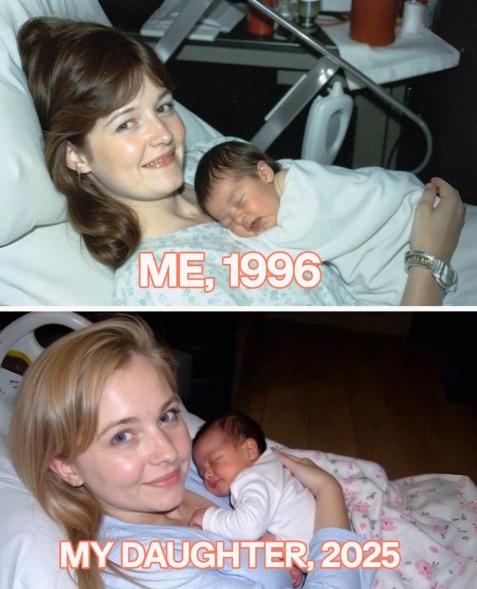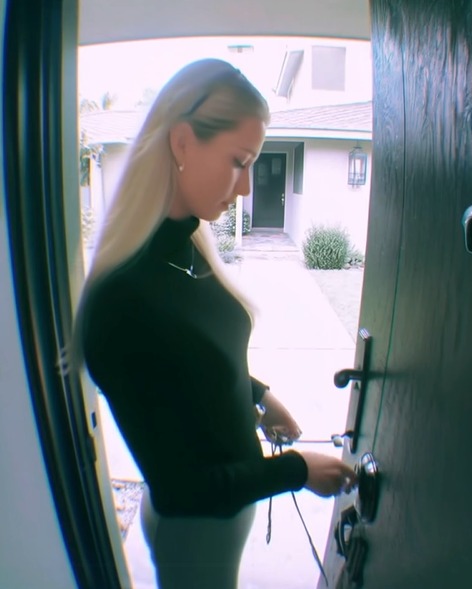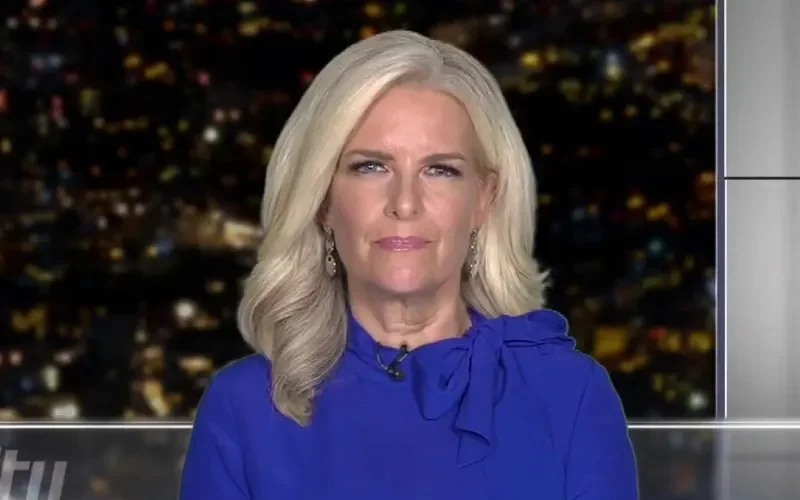Kristen never asked for applause. She worked the early shift at the post office, came home to help with algebra, and still found time to sew Claire’s prom dress from thrift-store fabric. Single motherhood wasn’t a badge she wore; it was the air she breathed. So when Claire announced her pregnancy, Kristen’s first instinct was practical joy: she crocheted tiny booties, stocked up on diapers, and painted the spare-room wall the softest yellow she could find. She imagined Friday-night sleepovers, cookie crumbs, and bedtime stories—every sweet chapter she’d once provided, now multiplied for a grandchild.
Then came the phone call that froze the color in her chest. Claire’s voice trembled, apologizing before she even reached the point. “Mark doesn’t want you visiting right now. He says… he doesn’t want the baby influenced by single-mom values.” The words hit like ice water. Claire whispered that she loved her mom, that Mark just needed time, but the line went dead before Kristen could form a reply. The yellow wall seemed to pulse with absence.
For two weeks she wandered her quiet house, opening and closing the nursery drawer full of miniature socks. Grief finally nudged her out the door and back to the community food pantry she’d helped start years earlier. If her own grandchild couldn’t use her love, someone else’s would. On her first morning she met Maya—twenty-two, newly evicted, baby balanced on her hip like a fragile trophy. Kristen’s voice caught when she asked the infant’s name. “Eli,” Maya said, eyes rimmed red with exhaustion. Kristen handed over a pack of diapers she’d bought for Claire, and something inside her unclenched.
What began as occasional volunteering turned into a routine: Kristen rocked Eli while Maya filled out job applications, brought casseroles, taught Maya to stretch a chicken across three meals. She never mentioned Claire; she didn’t need to. The baby’s weight against her shoulder filled the hollow space Mark’s judgment had carved. Maya, sensing the ache beneath the kindness, started calling her “Mama K.” Kristen told herself it was enough—until the night Claire appeared on the porch, diaper bag slung low, eyes swollen from crying.
Mark had grown critical, controlling, then absent. Claire found herself pacing apartment floors at 3 a.m., paralyzed by colic and shame. “I finally understand what you carried alone,” she whispered. Kristen didn’t say I told you so; she simply opened the door wider. Within days the yellow nursery had a crib again—this time for Eli when Maya needed respite, and for Claire’s baby when his mother craved a shower or a nap. The house thrummed with bottles, lullabies, and the low hum of female solidarity.
Mark sent angry texts, then pleading ones. Claire filed for separation. Kristen held her while she raged, fed her soup, watched her relearn confidence between diaper changes. Maya, now working at a daycare, picked up extra shifts and moved into the spare room; the three adults formed a constellation of shared chores and midnight baby walks. Neighbors started dropping off hand-me-downs, casseroles, and whispered stories of their own fractured families. The “village” Kristen had always believed in re-assembled under her roof.
Six months later the living room looked like a toy factory explosion—Eli and baby Leo rolling on a quilt Kristen had sewn from Claire’s old prom dress and Maya’s favorite flannel. Claire stood at the stove stirring spaghetti sauce, humming the lullaby Kristen used to sing. Maya entered with groceries, calling out, “Mama K, your grandson just tried to pet the cat—gentle hands!” Kristen laughed, the sound rich and foreign after a year of silence.
One evening Claire tucked Leo in, then found Kristen on the porch. “I thought love had to look like a traditional family,” she said. “But this—” she gestured inside, “—this is stronger.” Kristen wrapped an arm around her. “Family is whoever shows up,” she replied. “Sometimes they come through the front door, sometimes through heartbreak, but they come.”
Mark eventually asked to meet his son. They agreed—on neutral ground, with supervision. Kristen packed an extra diaper bag, kissed both babies, and stayed in the background. She felt no triumph, only relief that fear no longer dictated the story. Love had found a wider table, and she—the woman once banished for her “single-mom values”—sat at its head, passing casserole, wiping chins, proving that rejection can be the doorway to a larger, fiercer kind of belonging.


